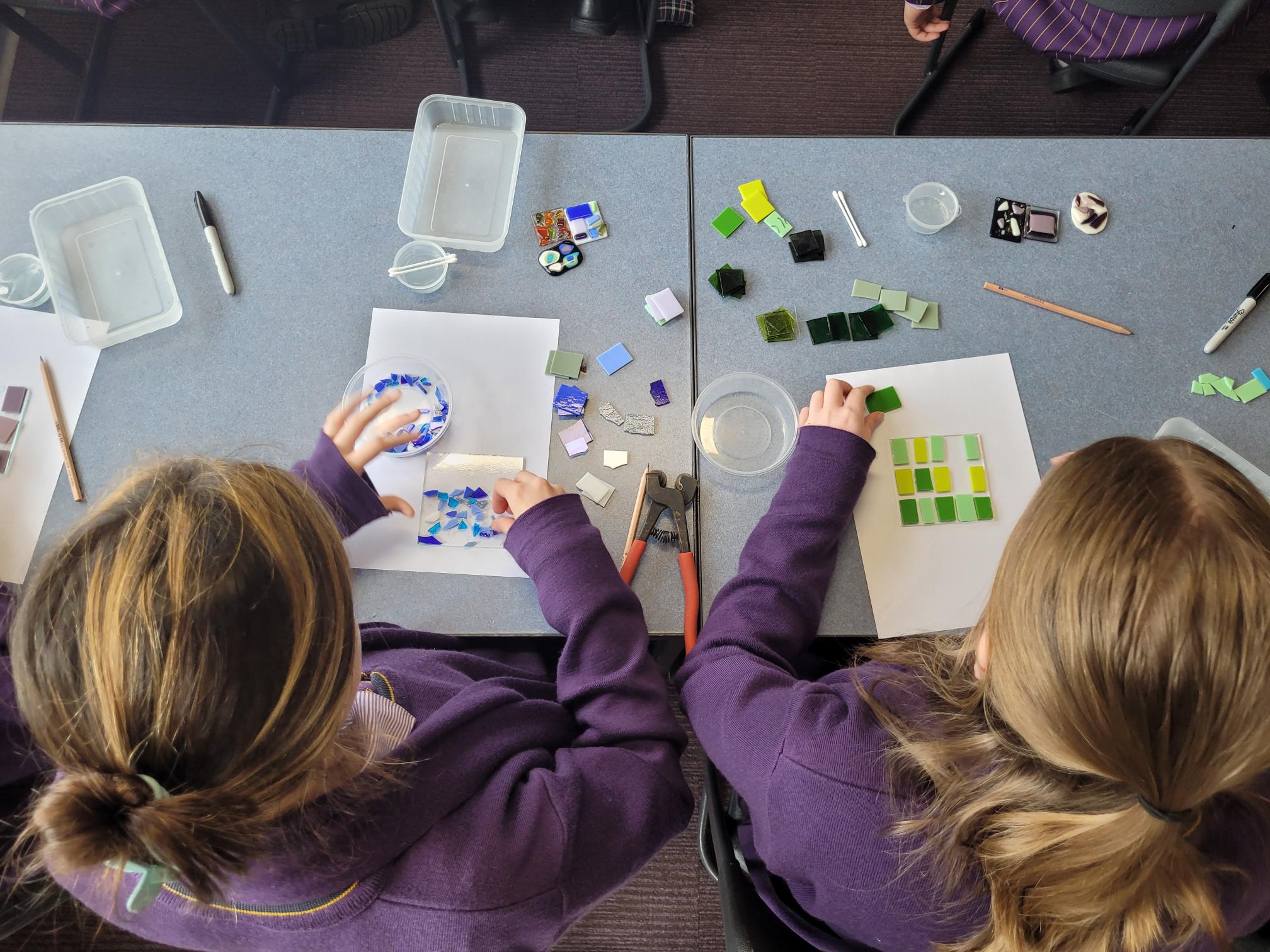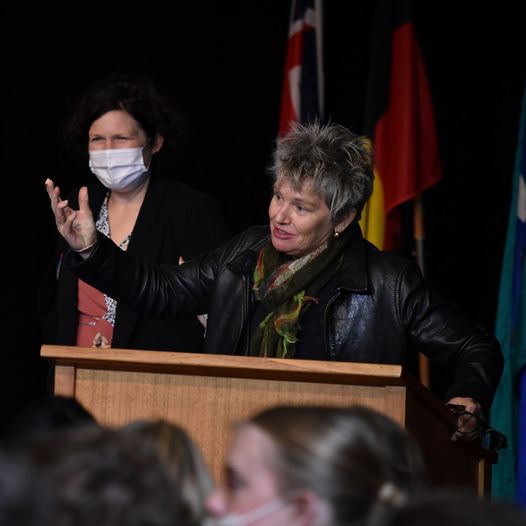
Australia’s annual celebration of science and technology aims to raise the profile and increase the public understanding and appreciation of science, innovation, engineering and technology and their role in maintaining and improving our society, economy and environment. Our students have embraced this year’s theme ‘Glass: more than meets the eye’ and have been busy baking stained glass cookies, making sugar glass and learning how to create glass mosaics.
The Science and STEM space is an exciting career destination. The opportunities are endless as technology advances and new careers are forged every day. STEM is a platform for innovation, creativity and design and its respective subjects and careers will be at the forefront of developments that will change our lives for the better.
The International Baccalaureate framework fosters a student-centred classroom with inquiry at the core.
‘Through our curriculum, Wesley nurtures learners into future scientists and STEM entrepreneurs, guiding students to investigate issues independently and collaboratively through contemporary research, observation and experimentation. Students are encouraged to be empathetic communicators who value teamwork. By building a strong foundation and continually exposing our students to new challenges, we help develop their capacity as leaders and learners’, says Denise Raven, Faculty Coordinator, Sciences at Wesley’s Elsternwick Campus.
‘This fosters critical and creative thinking about research and design, as well as good ethical-reasoning skills, which further develops their sense of responsibility as members of the local and global community.’
‘I encourage my students to be curious, explore, follow their passions and have the confidence to launch into STEM and look forward to watching them develop their STEM skills and achieve amazing things’, says Denise.




National Science Week 2022: ‘Glass – more than meets the eye’
The theme for Science Week 2022 was ‘Glass – more than meets the eye.’ The UN describes glass as one of the most important, versatile and transformative materials of history. Glass will continue to have an enormous impact in the future, not only for its many applications, but for the integral role it will play in sustainable development.
At St Kilda Road Campus, Dr Lorien Parker or Dr Loz from SciencePlay Kids visited the Junior School to teach our young people about senses and their electronic equivalent through experiments that use light, sound and touch sensors.
In the Junior School at Elsternwick Campus, our learners celebrated National Science Week by taking part in some fun experiments. The focus of the sessions was on the three main states of matter: solid, liquid and gas. The students explored these states through four different experiments that demonstrated the properties of each state of matter.
Science helps children develop important skills such as observation, communication, opinion forming and hypothesising. But seeing the children’s faces light up when they watched the different reactions was priceless!
The Year 9 students immersed themselves in a project which fostered authentic student agency, curating activities and events with a glass theme for students from ECLC through to Year 9. They also participated in an information session about the 'Bionic Eye' with guest speaker, Lisa Lombardi, from the Centre for Eye Research Australia.
As a reward for their efforts, the Year 9 cohort participated in a glass fusing workshop as a hands-on experience and celebrated the wonderful world of glass art for themselves.
Emily Watson – PYP Head of Learning Science, Technology and Social Studies and Denise Raven – MYP Faculty Coordinator Science








At the Glen Waverley Campus, staff and students in the Senior School heard from Professor Margaret Hellard AM, Deputy Director of the Burnet Institute. A researcher and clinician, her principal research interests are in preventing the transmission and improving the management of blood borne viruses - HIV, Hepatitis B and Hepatitis C, with the ultimate aim being to eliminate viral hepatitis as a public health threat and end the HIV/AIDS epidemic. Being able to hear from experts in their field, listen to how problems can be solved and the evidence needed to drive action is vital in the current climate.

Our Senior School students were extremely engaged, with many asking thought provoking questions about science, religion, philosophy and policy. We are so grateful to Professor Hellard for sharing her expert knowledge, experience and wit.
We also hosted Science themed Senior School House competitions. Each House competed in a 'Backwards Bike' time trial, before moving to the science labs to use UV torches, USB devices and their knowledge of science across the curriculum to solve cryptic science-themed clues to open a locked box with multiple number, letter and directional locks.
Erin Bruns, Head of Faculty Sciences
